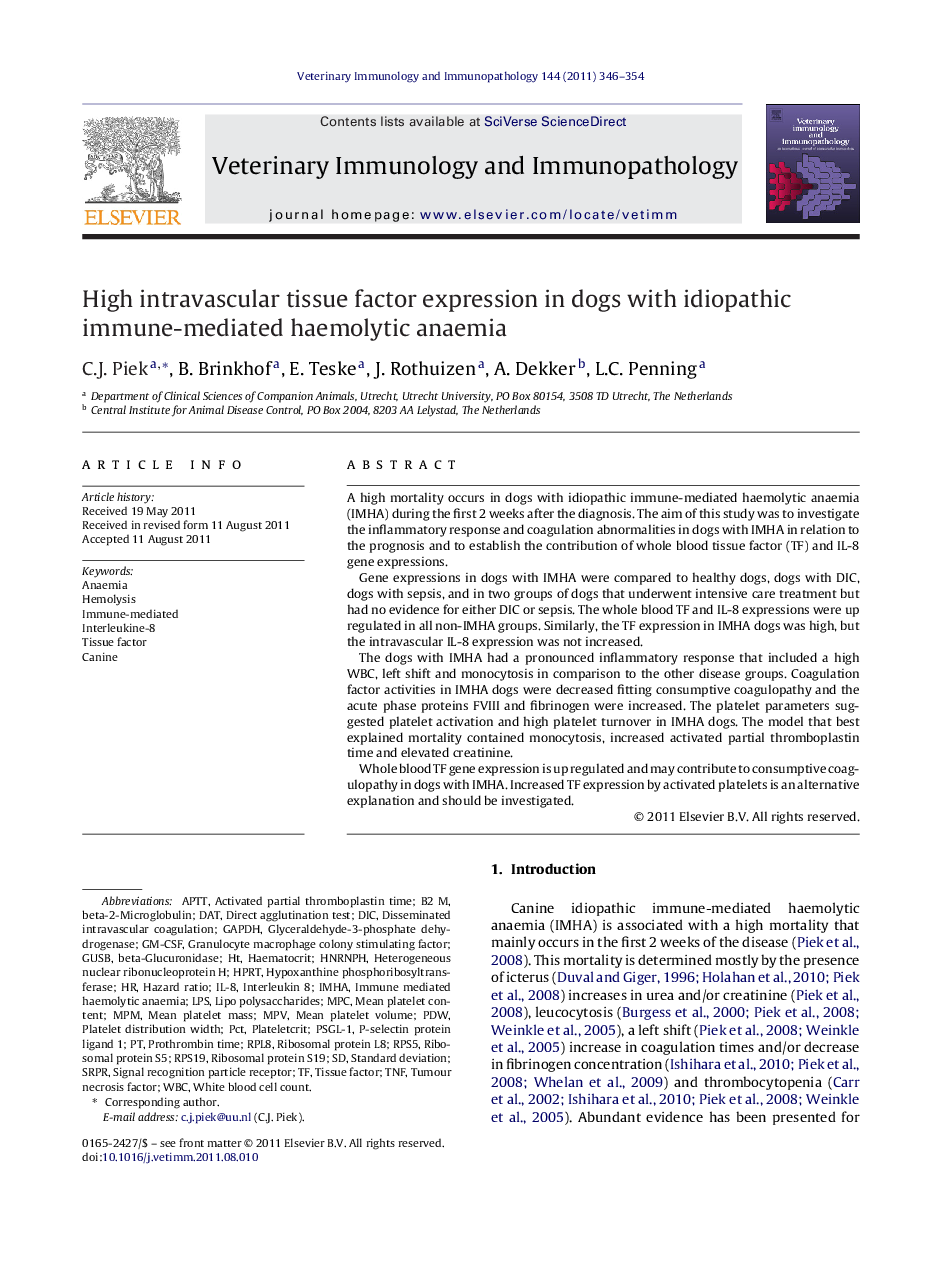| Article ID | Journal | Published Year | Pages | File Type |
|---|---|---|---|---|
| 2462013 | Veterinary Immunology and Immunopathology | 2011 | 9 Pages |
A high mortality occurs in dogs with idiopathic immune-mediated haemolytic anaemia (IMHA) during the first 2 weeks after the diagnosis. The aim of this study was to investigate the inflammatory response and coagulation abnormalities in dogs with IMHA in relation to the prognosis and to establish the contribution of whole blood tissue factor (TF) and IL-8 gene expressions.Gene expressions in dogs with IMHA were compared to healthy dogs, dogs with DIC, dogs with sepsis, and in two groups of dogs that underwent intensive care treatment but had no evidence for either DIC or sepsis. The whole blood TF and IL-8 expressions were up regulated in all non-IMHA groups. Similarly, the TF expression in IMHA dogs was high, but the intravascular IL-8 expression was not increased.The dogs with IMHA had a pronounced inflammatory response that included a high WBC, left shift and monocytosis in comparison to the other disease groups. Coagulation factor activities in IMHA dogs were decreased fitting consumptive coagulopathy and the acute phase proteins FVIII and fibrinogen were increased. The platelet parameters suggested platelet activation and high platelet turnover in IMHA dogs. The model that best explained mortality contained monocytosis, increased activated partial thromboplastin time and elevated creatinine.Whole blood TF gene expression is up regulated and may contribute to consumptive coagulopathy in dogs with IMHA. Increased TF expression by activated platelets is an alternative explanation and should be investigated.
